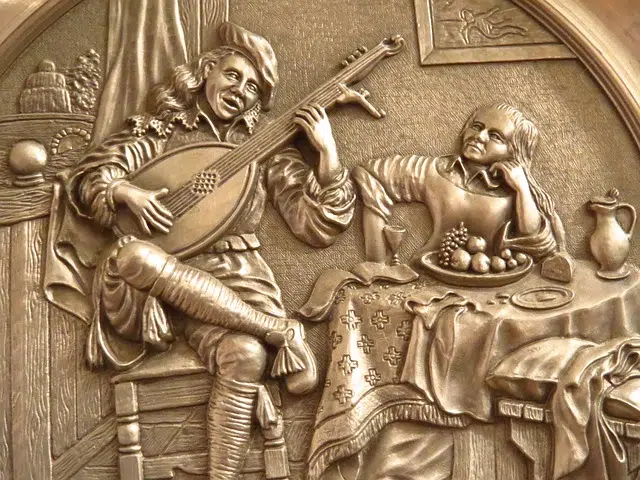
Elegy is a genre whose content is associated with sadness and pain.
An elegy is a poetic composition that belongs to the lyrical genre and that, in the Spanish language, is usually written in free verse or in tercets. This subgenre is associated with lamenting the death of a loved one or any event that causes pain and sadness . The Greek and Latin poets, however, also dealt with pleasant themes in their elegies.
In literature, narrative genres allow us to organize the elements that are part of the literary taxonomy, these are: lyric, narrative , epic and dramatic. According to the structure, style and theme that the texts have, they will be part of one classification or another. In the case of elegy, it brings together a series of themes and a particular meter that differentiate it from other styles.
The elegy and the losses
The term has Greek origins and in that culture it referred to verses that represented issues that faced human problems, especially related to the inexorability of death . During the Renaissance, the concept was recovered to refer to those poems that had melancholic features and that could be inspired in some way by old epic traditions . All this allows us to say that today an elegy is a poetic discourse about the deep meaning of human existence, even after death.
Beyond the pain of death, the elegies portray all kinds of losses. There are elegies dedicated to the loss of hope and the passage of time , among other themes that, in one way or another, cause nostalgia, anguish, grief or dejection in the author.

Elegy is a type of poetic composition.
Main authors
Among the main Greek authors of elegies are Solon (one of the so-called seven wise men of Greece), Theognis (defender of the concept of carpe diem ), Mimnermus (who used to lament the brevity of life and the problems associated with old age ), Callinus and Semonides of Amorgos .
The most famous Latin poets who dedicated themselves to the development of elegies are Propertius (an author recognized for his tragic vision of love ), Tibullus and Ovid .
Content of an elegy
In an elegy the reason for existence is expressed more or less explicitly. From yesterday lost, to tomorrow imagined. A genre that attempts, using memory and the word as fundamental elements, to transmute the dead man into a living word. Through the topos (the poetic text) the recovery of what has been lost becomes possible; Through the poem, that missing treasure can take a new form and survive, and with it the author's own word beyond the ephemeral existence.
In this type of texts, it is considered that every poem about death is a triumph of reason over unreason, of words over babbling and moaning of pain for the death of a loved one and, furthermore, for death itself.
Gender throughout history
Despite the numerous changes that the genre underwent over the generations, the great influence of Greco-Latin literary compositions remained almost intact; and the essence of said genre did not vary over the generations. So much so that today, an elegy can refer to any deep pain experienced by a person, a society or the universe itself.
It should be noted that a stanza of two verses, a hexameter and a pentameter that was very common in Greco-Latin meter, is known as an elegiac couplet . This style could never be successfully imitated by Spanish-speaking poets, since the length of the syllables of our language does not allow such parameters. The authors, on the other hand, have based the adaptation of the elegiac couplet on the hemistichs and the accentual rhythm.
